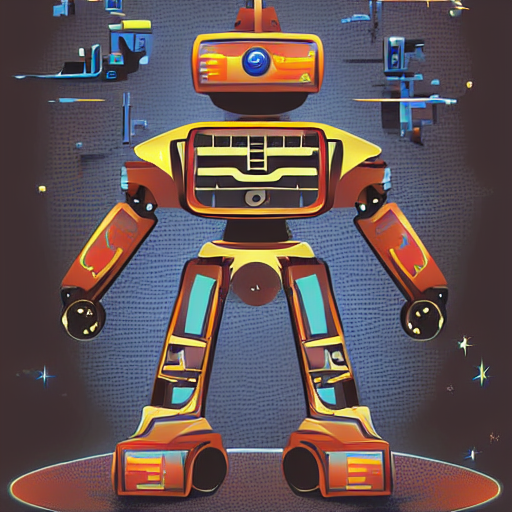Introduction
The concept of artificial intelligence has long been a staple in the realm of science fiction, captivating our imaginations with stories of advanced robots, self-aware machines, and futuristic technologies. As we delve into this fascinating topic, let’s explore how AI has evolved from being an idea confined to the pages of novels and films to becoming a reality that shapes our daily lives in countless ways.
As in my typical style, I will keep this a short read; there are numerous other sources where you can tap into much greater detail if desired.
The Origins: From Classic Literature to Silver Screen
In 1818, what is perhaps the fictional work to consider artificial intelligence, Mary Shelley’s Frankenstein provides a cautionary tale of creating intelligence and the ethical questions it raises.
These themes would be reimagined and repeated by the likes of Isaac Asimov, as well as Arthur C. Clarke in the form of HAL in 2001: A Space Odyssey.
The concept of AI companions continues to be explored in the ever-popular Star Wars films, where friendly robots provide speech translation, mapping/guidance, and co-pilot functionality. Artificial companionship is also explored in the Star Trek and Next Generation series of TV shows.
Other notable mentions go to Blade Runner and The Matrix, where ethics and potential catastrophes of sentient AI are considered.
Real Life Applications: AI Transforming Industries and Society
Considering how commonplace AI has been in pop culture for the past 200 years, is it any wonder some of our best and brightest in science and technology have been working on bringing AI to reality? I would argue it was inevitable that we find ourselves living in a world with AI, but the shape and form may be surprising.
Since the 1940’s, people were considering the possibility of thinking computers. In fact, in 1950 Alan Turing released a research paper titled Computing Machinery and Intelligence where he described how to build and subsequently test the intelligence of machines. However, computers of that era lacked even the basic ability of storing commands. Mr. Turing was considerably ahead of his time, and decades would pass before the next steps could occur on building knowledge rich AI models.
Even around 1970, researches theorized that computers were “millions of times too weak to exhibit intelligence” as stated by Hans Moravec, a doctoral student at the time. As is often the case, science had to wait for technology to catch-up. And catch-up is exactly what happened.
In 1997, the reigning world champions of strategy games Chess and Go were both defeated by computers. These matches were widely publicized and reported on, demonstrating that computers could “think” and even “win” at thinking in very specific situations.
We would still go another twenty years or so before computers could demonstrate an ability to broad associate large amounts of information in much the same way as a human brain. Chat GPT-3 launched in 2020 after consuming vast amounts of data: books, magazines, newspapers, huge swaths of the internet. Using this huge trove of human knowledge, a computer program could finally interpret prompt or question, understand the relationship of the words, check its extensive datasets, and generate a response.
Conclusion & Is it actually intelligent?
Consider an example. An AI program was presented with an image of a toy lion and a toy brontosaurus. It was then asked to “choose the animal that is 65 million years old.” After a brief pause, it chose the brontosaurus. Now think about the number of dots it needed to connect to make that choice.
- It needed to identify that the cheap plastic toys represent animals
- It needed to identify the brontosaurus as a dinosaur
- finally it needed to correlate age as it pertains to dinosaurs living 65 million years ago.
That is a lot of steps and frankly I would have thought unsolvable by a computer just a few short years ago.
This is where we are today. Given that computers are now doing what many believed to be impossible a couple of years ago, everyone is re-evaluating what could be solved by AI. From decoding the text of ancient scrolls to self-driving cars. Assisting with medical diagnoses, to artificially creating song mash-ups from our favorite artists. It seems that no industry, no facet of daily life will be left out of the AI revolution.
If you appreciate not seeing ads here and would like to show your support, please consider ☕buying me a coffee, thanks!
